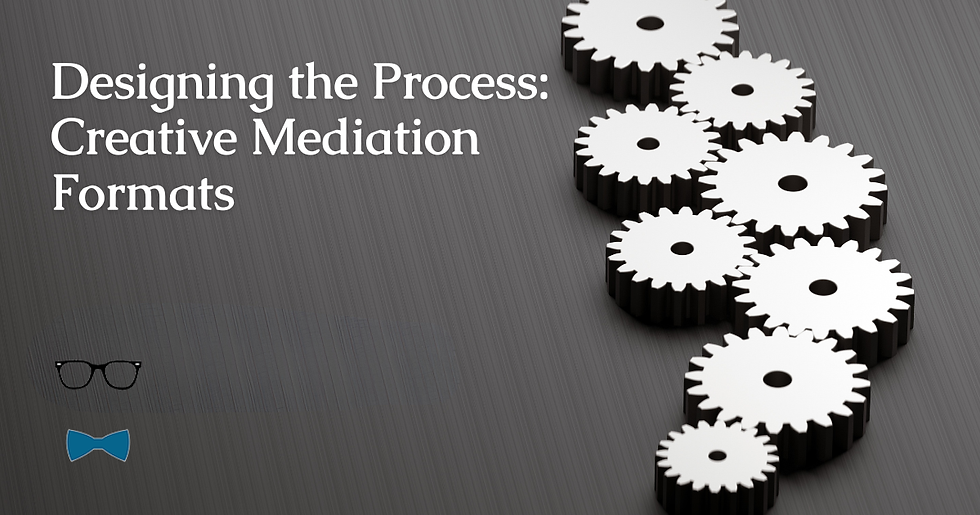Expanding the Concept of Relevance in Mediation: A Settlement Perspective
- Cooper Shattuck

- Nov 20, 2024
- 3 min read
In mediation, a lawyer's approach to relevance can significantly influence the negotiation process and, ultimately, the outcome. Traditionally, the concept of legal relevance is narrowly defined: evidence or arguments are considered relevant if they have a direct bearing on the potential outcome of a court case. This type of relevance is crucial in evaluating the strengths and weaknesses of a case, assessing the potential verdict, and shaping one’s legal strategy. However, in the context of mediation, a broader understanding of settlement relevance can open doors to creative and mutually beneficial resolutions.

What Is Settlement Relevance?
Settlement relevance encompasses factors, concerns, or interests that extend well beyond what would be admissible or persuasive in a courtroom. It includes considerations that matter to the parties but might not have any legal bearing. In other words, settlement relevance captures what may influence a party’s willingness to agree to a resolution that both sides find acceptable. This broader perspective often includes:
Emotional or personal interests: Sometimes, parties care deeply about things like an acknowledgment of harm, the maintenance of relationships, or even the emotional toll of continued litigation.
Financial considerations beyond damages: These may include the cost of prolonged litigation, the time value of money, or financial stability.
Non-monetary terms: This could involve confidentiality agreements, future business opportunities, or creative solutions that hold significance for one party.
Perceived fairness or principles: A party may have a personal or corporate ethos that guides their approach to resolving disputes, which may be settlement-relevant even if not legally relevant.
The Importance of Settlement Relevance
Focusing solely on legal relevance can create barriers to resolution. Mediation, however, is designed to explore and address the underlying needs and interests of the parties involved. By considering settlement relevance, lawyers and mediators can craft solutions that might be outside the bounds of what a court could order but are nonetheless highly valuable to the disputing parties.
Practical Implications for Lawyers
Broadening Preparations for Mediation: During mediation preparation, consider not only the legal merits of the case but also the broader needs and interests of both parties. Think about what matters to your client beyond a financial award or legal victory.
Facilitating Open Discussions: Encourage your client to discuss non-monetary goals and listen attentively to what matters most to the opposing party. The process can unveil areas for potential agreement that would never come up in a courtroom.
Utilizing the Mediator’s Expertise: Mediators often excel at identifying what is settlement relevant. Engage with the mediator to explore creative options that could lead to resolution. An experienced mediator can help highlight opportunities to satisfy interests that may not align with strict legal arguments but are critical to reaching an agreement.
Shifting Perspective: A Win Isn’t Always a Verdict
Ultimately, understanding settlement relevance means acknowledging that a “win” in mediation does not always look like a traditional legal victory. It may mean resolving a case quickly to alleviate stress or securing a promise of changed behavior from the other side. For your clients, the best possible outcome might hinge on elements unrelated to the evidence or case law you’ve diligently prepared. And it may mean that the other side wins too.
By adopting a broader view of relevance, lawyers can better serve their clients in mediation, opening paths to innovative, meaningful, and lasting resolutions. In the end, mediation isn’t about winning or losing in the courtroom—it’s about finding common ground in the negotiation room. And ideally, a win-win result.
Remember: When preparing for mediation, ask your client not only what’s legally relevant but also what is settlement relevant. You might be surprised at the opportunities this approach uncovers.



Comments